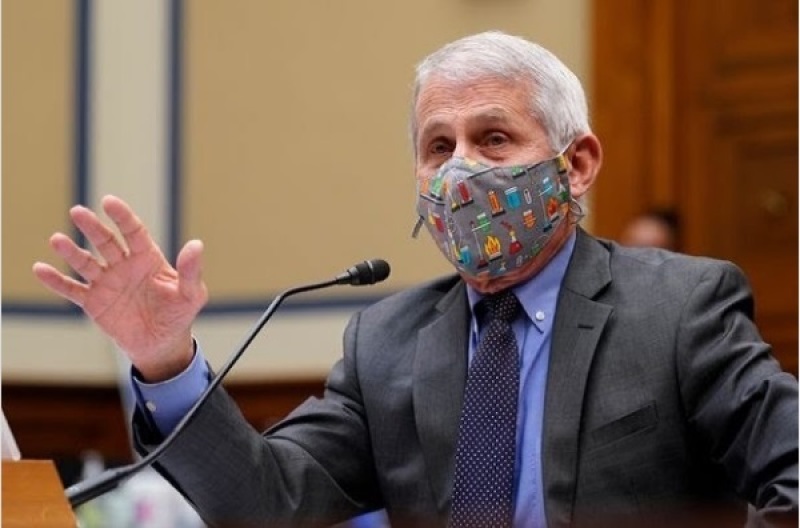
The National Institute of Allergy and Infectious Diseases (NIAID), of which the White House chief medical advisor Dr. Anthony Fauci is the director, has provided "substantial increases in grant money" to four scientists who played a "key role" in establishing the "public narrative" of the natural origins of the coronavirus that caused the global COVID pandemic.
Three of the four scientists were present during a conference call held by Dr. Fauci on February 1, 2020, in which they talked about how to address the public's questions with regards to COVID.
According to a news analysis by The Epoch Times, the three scientists present in the call were Kristian Andersen, Robert Garry, and Michael Farzan, all of which were responsible for developing "Proximal Origin," which the report describes as "a highly influential paper that promoted a natural origins theory for SARS-CoV-2" and a paper that had been "frequently cited by the government and media."
However, emails that were published under Freedom of Information Act requests showed that the scientists informed senior members of Dr. Fauci's team during the teleconference that they were 60% to 80% sure that COVID came from a laboratory. There appears to have been a 180-degree turn, as their private concerns about COVID was not reflected in the first draft of "Proximal Origin," which was completed on the same day as the teleconference.
"Proximal Origin" was co-written by Andersen and Garry, while Farzan was credited in the version of the paper that was published in Nature, for his participatory discussion on the creation of the article. Both Andersen and Garry were provided funding increase through NIAID's establishment of the Centers for Research in Emerging Infectious Diseases (CREID), a program that was previously referred to as Emerging Infectious Diseases Research Centers (EIDRCs) during its early planning stages in 2019.
CREID was formally announced on August 27, 2020, with no reason as to why it was renamed. The new initiative was descibed as a global network that is responsible for "multidisciplinary investigations into how and where viruses and other pathogens emerge from wildlife and spillover to cause disease in people." It also provided up to 11 new grants totalling $17 million of new funding beginning 2020 and $82 million in total funding over the next five years.
NIAID was also found to have provided a significant funding increase to EcoHealth's Peter Daszak, who was involved in gain-of-function coronavirus research at the Wuhan Institute of Virology in China. Funding for Daszak moving forward will be coursed through CREID.
The report showed that Andersen and Garry received a new $8.9 million 5-year grant under the CREID initiative that established the West African Research Network for Infectious Diseases (WARN-ID). Meanwhile, Daszak revcceived a $7.5 million, 5-year CREID grant to help put up the Emerging Infectious Diseases: South East Asia Research Collaboration Hub (EID-SEARCH).
The report said, "While it is not known at this point whether there was a connection between the increased funding and the scientists' involvement in shaping the public natural origins narrative, these new revelations raise an obvious question."
It questioned why three of the chosen scientists were the very same people who "led the way in promoting Fauci's natural origins narrative-despite their private concerns that the virus had been created in a lab."
As the world enters its third year of the pandemic, many are still questioning the true origins of the coronavirus that caused 5.4 million deaths. The Australian Strategic Policy Institute's Brahma Chellaney argued in The Strategist, "Nearly three-quarters of Americans now believe that it's 'likely' that Covid-19 was leaked from the WIV." But also, that "The West also helped China to divert attention from the lab-leak hypothesis" because of the National Institutes of Health's ties to EcoHealth Alliance, which is responsible for funding coronavirus studies in Wuhan.
































